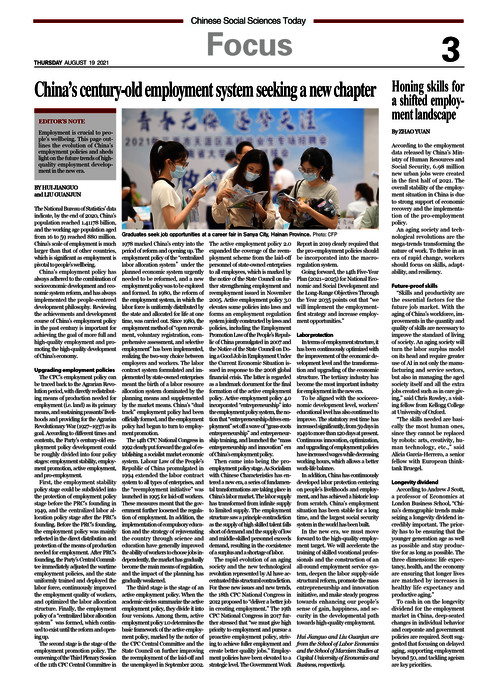Honing skills for a shifted employment landscape
2021-08-19 10:04:54
By ZHAO YUAN
According to the employment data released by China’s Ministry of Human Resources and Social Security, 6.98 million new urban jobs were created in the first half of 2021. The overall stability of the employment situation in China is due to strong support of economic recovery and the implementation of the pro-employment policy.
An aging society and technological revolutions are the mega-trends transforming the nature of work. To thrive in an era of rapid change, workers should focus on skills, adaptability, and resiliency.
Future-proof skills
“Skills and productivity are the essential factors for the future job market. With the aging of China’s workforce, improvements in the quantity and quality of skills are necessary to improve the standard of living of society. An aging society will turn the labor surplus model on its head and require greater use of AI in not only the manufacturing and service sectors, but also in managing the aged society itself and all the extra jobs created such as in care giving,” said Chris Rowley, a visiting fellow from Kellogg College at University of Oxford.
“The skills needed are basically the most human ones, since they cannot be replaced by robots: arts, creativity, human technology, etc.,” said Alicia García-Herrero, a senior fellow with European think-tank Bruegel.
Longevity dividend
According to Andrew J Scott, a professor of Economics at London Business School, “China’s demographic trends make seizing a longevity dividend incredibly important. The priority has to be ensuring that the younger generation age as well as possible and stay productive for as long as possible. The three dimensions: life expectancy, health, and the economy are ensuring that longer lives are matched by increases in healthy life expectancy and productive aging.”
To cash in on the longevity dividend for the employment market in China, deep-seated changes in individual behavior and corporate and government policies are required. Scott suggested that focusing on delayed aging, supporting employment beyond 50, and tackling ageism are key priorities.



